The issue
The forests and communities of Chiquitanía, Bolivia, face mounting threats from increasingly frequent and intense forest fires, worsened by climate change and unsustainable land use. Following the 2024 fires, which saw millions of hectares burned in Bolivia, jaguar populations in Palmarito de la Frontera have taken a hit. All population indicators have declined, undoing years of conservation efforts. For example, in 2023, the community recorded 9 individuals, now there are only 5 showing on the camera traps.
Deforestation for agriculture also leads to habitat loss driving people and wildlife, like jaguars, closer together. This can lead to human-jaguar conflict.
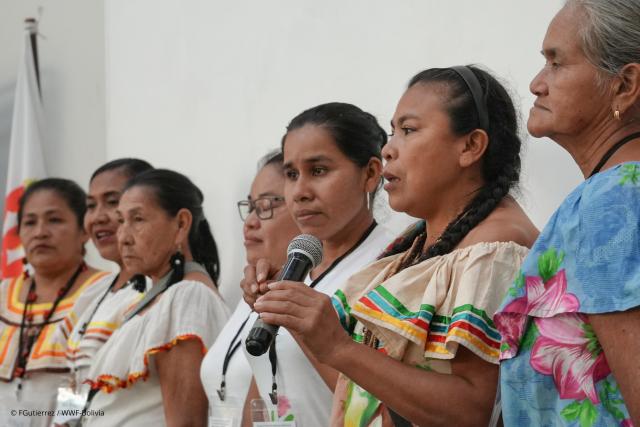
The Solution
Local people, including Indigenous women and sustainable ranchers are deeply affected - both emotionally and economically - but are rising to meet the challenge with WWF-Bolivia. A holistic approach is needed. Community-led fire prevention plans, strategic alliances around women’s roles in protecting the forest, and efforts to coexist with wildlife, hope persists in the form of resilience, collaboration, and a shared commitment to protect the heart of the forest.
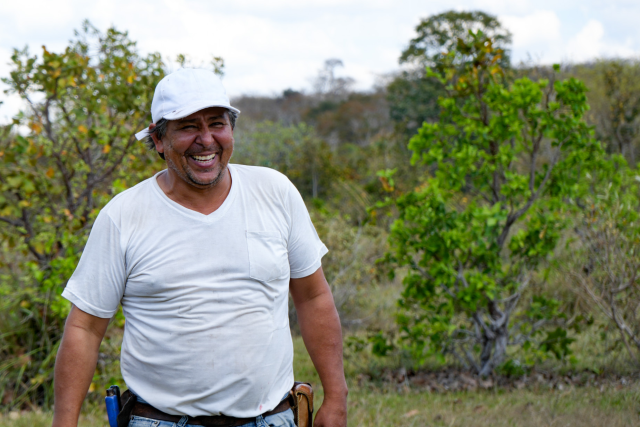
Boris Colombara - The Rancher Choosing Life
In San Ignacio de Velasco, lives Boris Colombara - a rancher who refuses to deforest. Instead, he has decided to make his property a refuge for life. Against all odds, he seeks to coexist with the jaguar. On his ranch, there are no large cleared areas or devastated pastures. The cattle walk under the shade of the trees, feed along natural trails, and freely return to the corral each evening. But his commitment to nature coexists with a difficult reality: jaguars and pumas have killed dozens of calves.
WWF and the Government of Santa Cruz have joined forces to support Boris in his agroecological practices and in the challenge of coexisting with the jaguar. The first step was to install camera traps to learn more about the biodiversity on is farm. Electric fences, better management, and productive alternatives all contribute to achieving coexistence. Boris Colombara reminds us that livestock farming can have another face: one that doesn't expel, but coexists.
WWF-Bolivia camera trap footage
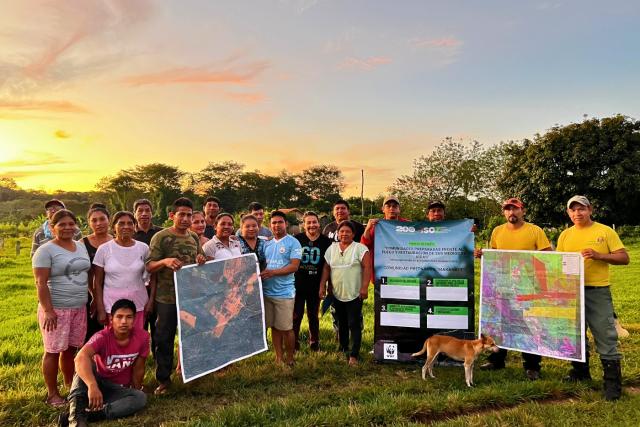
Result
The fire left deep scars, but it also ignited a collective decision: to prepare better, to act sooner, to restore what was lost. In response, WWF-Bolivia and the Autonomous Departmental Government of Santa Cruz joined forces in a strategic alliance to carry out the pilot project “Communities Prepared Against Forest Fires”, with the aim of strengthening the resilience of the territory and communities against future fires.
Seven communities are part of this initiative: Candelaria, Palmarito de la Frontera, Makanaté, Sagrado Corazón, Río Blanco, San José de Campamento and Colorado. Each community now has its own unique fire prevention plan, developed through a collaborative process that combines the technical knowledge of forest firefighters with the ancestral knowledge of Indigenous communities. The plans tailored to each community’s reality include actions such as creating water reservoirs in the forest for firefighting and convening with neighbouring communities to cooperate on fire management.
This is the first time that many communities have carried out this type of work. Along with causing damage, it seems fire can also sow the opportunity for change. This pilot project demonstrates that - if we work together, forests can heal.
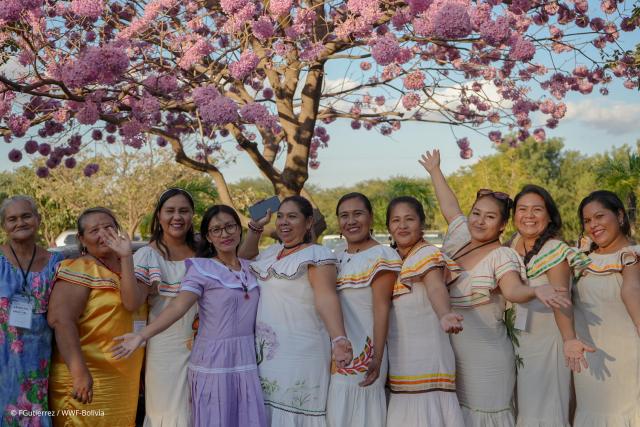
Women of Bolivia join the alliance
From the millions of hectares ravaged by fires in Bolivia in 2024, another reason for hope was forged. Women from Indigenous and local communities marched toward Santa Cruz to make their voices heard. In the city streets, the march raised a clear message: the climate emergency is also social, territorial, and gender-based. That cry has not faded since. In July 2025, that call was transformed into action through the project "Chiquitanía Women Weaving Collaborative Networks for Forest Fire Risk Management".
This process, promoted by the Bolivian Foundation for Social Development and the Regional Organization of Chiquitanía n Indigenous Women (ORMICH), with support from WWF-Bolivia and the Government of Santa Cruz, held a forum that brought together forest firefighters, community leaders, universities, public organisations, and international cooperation agencies to build alliances that strengthen fire prevention, response, and recovery – with women.
In response to the growing impact of forest fires, many Indigenous women have trained as firefighters. During the meeting, they were recognised not only as forest caretakers, but also as strategists and leaders. Concrete commitments were forged at the workshops. Universities offered research, training, and opportunities to showcase community knowledge, and various public institutions reaffirmed their willingness to include Indigenous women in planning, training, and decision-making processes.
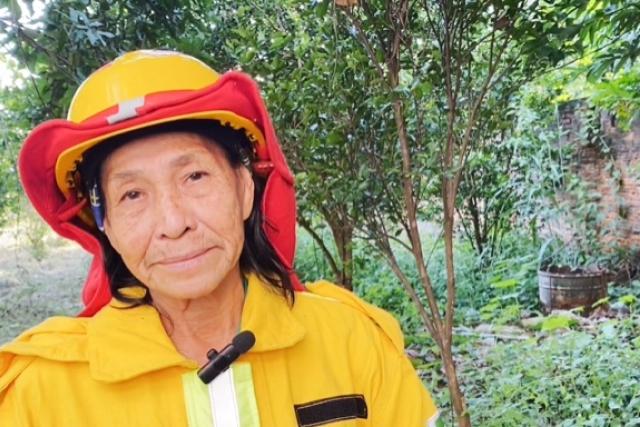
Ms Marina
Over 70 years of age, Ms Marina demonstrated power and commitment when tackling the 2024 fires as a community brigade volunteer. As the forest was ablaze around her home in Comunidad de los Sotos, Roboré, trees turning green to grey and birds burning in the sky, it was something pink that caught her attention. Up in the hills, she could see the distinctive blush leaves of the Tajibo tree. They were asking to be saved. Not yet burned, they were a symbol of hope.
Ms Marina shares “Anyone with a heart could feel it - seeing the forests all grey, everything burned, those plants blackened. But up there was that blooming Tajibo, asking for life, seeking help.”